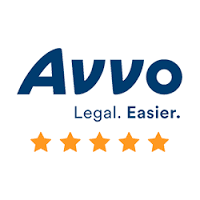Wills and Trusts
Serving Clients Throughout The Twin Cities and the State of Minnesota
Wills
When you have a will-based estate plan, you will not avoid probate, but you will make things easier on your family. A will is a letter to the probate court with instructions on who gets your stuff when you die. Rather than having the court decide who will get your assets, having a will allows you to choose who will receive those assets and also who will take care of your children by selecting guardians for children who are minors.
If you have a will, you will also need a health care directive, power of attorney and HIPAA waiver to make sure that your family can take care of you if you become incapacitated.
Even having the most basic will may save your family on the costs of fighting over who gets your personal possessions. Contact our office today if you would like a free initial consultation to discuss whether preparing a will or revocable trust is right for you.
Trusts
When you create a Revocable Living Trust (also known as a Revocable Trust or Living Trust) to hold your assets, you become the “Grantor,” as well as the “Trustee” and the “Beneficiary.” Assets transferred to a revocable trust remain in your control as the Grantor. The income from assets in the living trust is still reported on the grantor’s tax return. You are free to buy and sell property in the revocable living trust and add and remove assets from the trust as you see fit. Think of a revocable trust just like a box that you put your assets into. Just like it sounds, a revocable trust can be changed, amended, or even cancelled during your life. You get to control everything about the revocable trust.
There are many reasons you might wish to create a revocable trust, but most people create them to avoid probate and the court system, protect beneficiaries from divorce and creditors, avoid taxes, and maintain privacy. When you have a trust-based estate plan, you will also have a pour-over will, health care directive, power of attorney and HIPAA waiver.
Should I have a Will or a Trust?
Many clients ask whether they should have a revocable trust or a will. While trusts provide excellent flexibility and protection, not everyone needs one. Below is a checklist to help you determine whether a trust is right for you.
I want to:
- Control my property while I’m alive
- Take care of myself and my loved ones even if I become incapacitated or disabled
- Pass my property to my heirs when and how I want
- Keep my family and financial affairs private
- Avoid court interference
- Avoid probate
- Give inheritances layered in asset protection so my beneficiaries don’t lose their inheritance to divorce, bankruptcy, lawsuits, etc.
- Protect my assets so that they are not lost if my spouse/partner gets remarried and dies first in the new marriage
- Avoid beneficiary overspending and misuse of funds
- Educate my children and grandchildren
- Reduce the risk of will contests
- Minimize taxes
- Minimize attorney, court, and administrative fees
- Benefit a charity
- Protect and provide for a pet
If you check off one or more items on this list, then it may be worth discussing whether a revocable trust is a good fit for you. If you check off many things on this list, a revocable trust is probably a good fit. If you check off nothing, will-based planning may be a better fit.
Don’t worry, this checklist is just an initial measurement of goals. We always talk everything through with our clients to make sure you have the best plan for your individual situation. Contact our office today to schedule a free initial consultation to discuss whether a will or trust is right for you.



